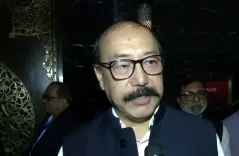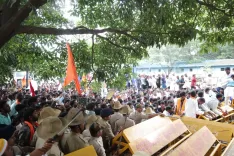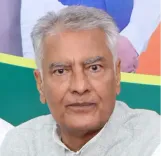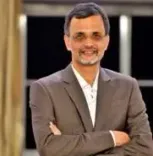Is the Storming of Nepal’s Pashupatinath Temple an Attack on Democratic Values?
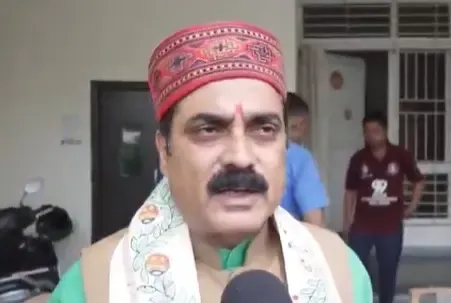
Synopsis
Key Takeaways
- Pashupatinath Temple is a crucial religious site for Hindus.
- Protests erupted due to a ban on social media platforms.
- Bihar Minister condemned the attack as an assault on democracy.
- The Nepalese Army has enforced a curfew to maintain order.
- Unrest reflects broader issues of free speech and cultural respect.
New Delhi, Sep 10 (NationPress) In a troubling incident, the renowned Pashupatinath Temple in Kathmandu, one of Nepal's most sacred Hindu sites, was assaulted amid the surge of violent anti-government demonstrations led by youth activists, commonly known as the "Gen Z movement".
In response to the reports of the temple's desecration, Bihar's government minister, Jibesh Mishra, expressed profound sorrow and concern regarding the event.
“It is truly disheartening. The temple serves as the cornerstone of our religious beliefs. If it has suffered damage, it is indeed a very unfortunate occurrence. This constitutes an attack on our democratic values and is detrimental to our cultural and political heritage,” Mishra stated.
“The Baba Pashupatinath temple stands as a beacon of faith for Hindus worldwide, and any visit to Kathmandu typically includes a pilgrimage to this sacred site. Thus, this action is unacceptable,” he further added.
This UNESCO World Heritage Site, a pivotal religious and cultural landmark, has been closed to worshippers as unrest continues to escalate in the nation. The Nepalese Army has been deployed around the temple to avert further destruction and maintain peace, with the situation remaining tense.
Violent protests erupted throughout Nepal following the government’s contentious decision to prohibit 26 social media platforms, which youth demonstrators decried as an infringement on free speech.
The unrest reached its peak on Tuesday when Prime Minister K.P. Sharma Oli resigned. Since then, protestors have targeted government buildings, vandalized the Parliament, and breached the residences of top officials, including President Ramchandra Paudel.
As civil law enforcement struggled to manage the turmoil, the Nepal Army declared a nationwide curfew, taking full responsibility for maintaining order. This curfew, enforced under the Local Administration Act of 1971, will remain in place until at least 6 A.M. Thursday, with potential extensions based on the ongoing situation.
Security forces cited widespread arson, attacks on public assets, and a breakdown of local administration during the peak of the Gen Z protests as justifications for the military's direct intervention.

